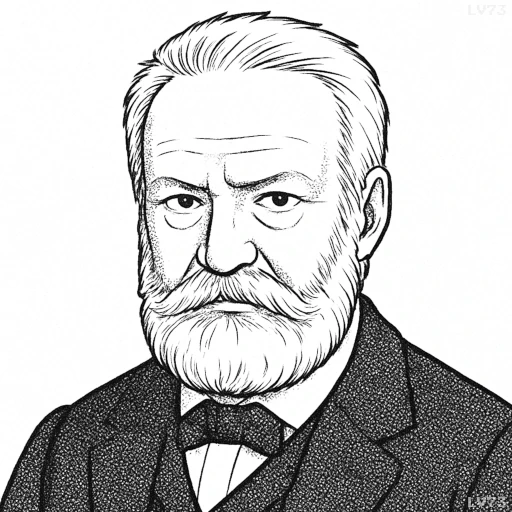“Idleness is the heaviest of all oppressions.”

- February 26, 1802 – May 22, 1885
- Born in France
- Author, poet, playwright
table of contents
Quote
“Idleness is the heaviest of all oppressions.”
Explanation
In this quote, Victor Hugo emphasizes the burden of idleness, describing it as a form of oppression that weighs heavily on the individual. Hugo suggests that idleness is not just a lack of action or productivity but a deeply oppressive force that stifles the human spirit. While physical oppression can limit freedom, mental and emotional oppression caused by inactivity can lead to a feeling of powerlessness and despair. Idleness, in Hugo’s view, denies individuals the opportunity to contribute meaningfully to society, to engage with their purpose, or to pursue their full potential, ultimately leading to a sense of dissatisfaction and stagnation.
Hugo’s perspective reflects his Romantic belief in the importance of action, purpose, and personal engagement with life. He valued the individual’s role in society and viewed meaningful work, creativity, and intellectual engagement as crucial elements of human flourishing. Idleness, in contrast, is seen as something that degrades the human spirit, making it harder to realize one’s aspirations or to live a life that is fulfilled and meaningful.
In modern terms, this quote speaks to the psychological and emotional toll of inactivity in today’s fast-paced world. While idleness might be seen as a temporary reprieve or relaxation, prolonged periods of inactivity can lead to feelings of emptiness and lack of purpose, especially when individuals feel they are not contributing to their communities or advancing their own goals. It reminds us that purposeful action—whether through work, creativity, or personal development—is essential to living a fulfilling life and avoiding the oppressive weight of idleness.
Would you like to share your impressions or related stories about this quote in the comments section?




